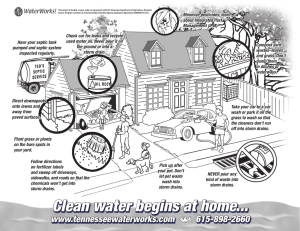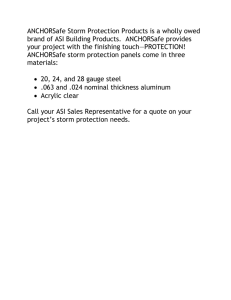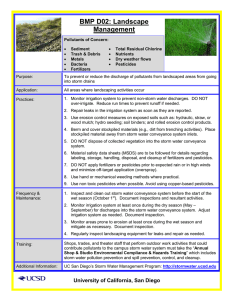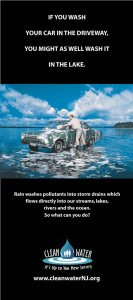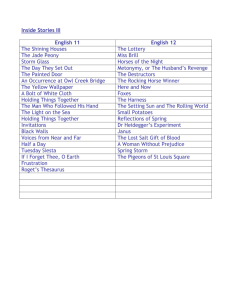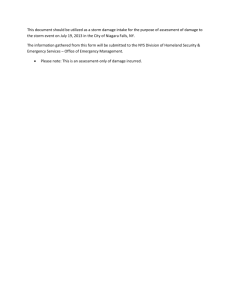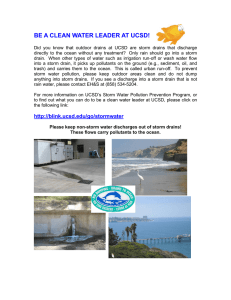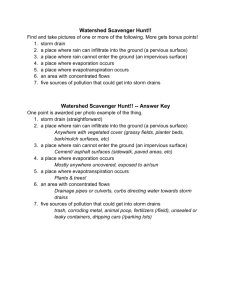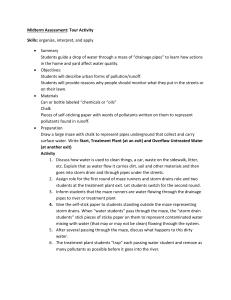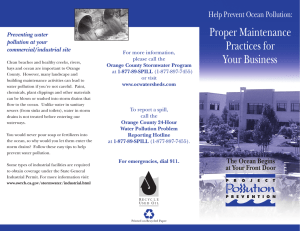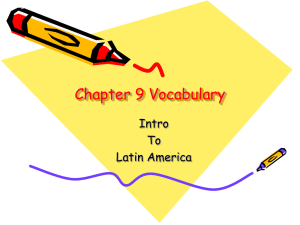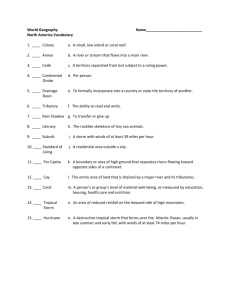| Storm Water Pollution Prevention The ocean
advertisement
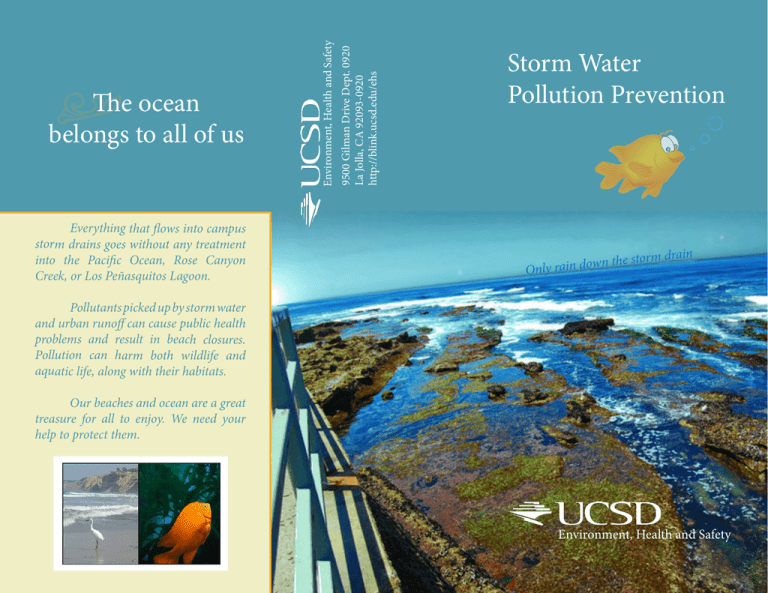
Everything that flows into campus storm drains goes without any treatment into the Pacific Ocean, Rose Canyon Creek, or Los Peñasquitos Lagoon. 9500 Gilman Drive Dept. 0920 La Jolla, CA 92093-0920 http://blink.ucsd.edu/ehs Environment, Health and Safety | The ocean belongs to all of us Storm Water Pollution Prevention wn the Only rain do storm drain Pollutants picked up by storm water and urban runoff can cause public health problems and result in beach closures. Pollution can harm both wildlife and aquatic life, along with their habitats. Our beaches and ocean are a great treasure for all to enjoy. We need your help to protect them. Environment, Health and Safety | n w o d n Only rai n i a r d m r the sto Causes of Water Pollution Storm water that comes in contact with pollutants such as oil, litter, heavy metals, pesticides, fertilizers, and sediment already on the ground causes water pollution. Improper disposal of pollutants onto the ground (such as food waste, paint waste, wash water, and automotive fluids) also pollutes our water. Common Water Pollutants Litter (plastic bags, cigarette butts, food, packaging, flyers and newspaper) Oil and grease (leaky cars and kitchen waste) Nutrients (fertilizers) Chemicals (pesticides, detergents) | What You Can Do Don’t dump anything in the storm drains Pick up litter; cover trash cans and dumpsters Pick up after your pet Don’t throw cigarette butts on the ground Coliform bacteria (from trash, animal or human excrement) Wash your car where the wash water won’t get in a storm drain Heavy metals (copper and zinc from vehicle brake pad dust and tire wear) Make sure your car doesn’t leak oil or other fluids Sediment (erosion and construction activities) Don’t over-water your lawn and minimize use of fertilizer and pesticides Wash water (outdoor washing) Reporting Report non-storm water discharges into storm drains: EH&S: (858) 534-3660 Printed on recycled paper
